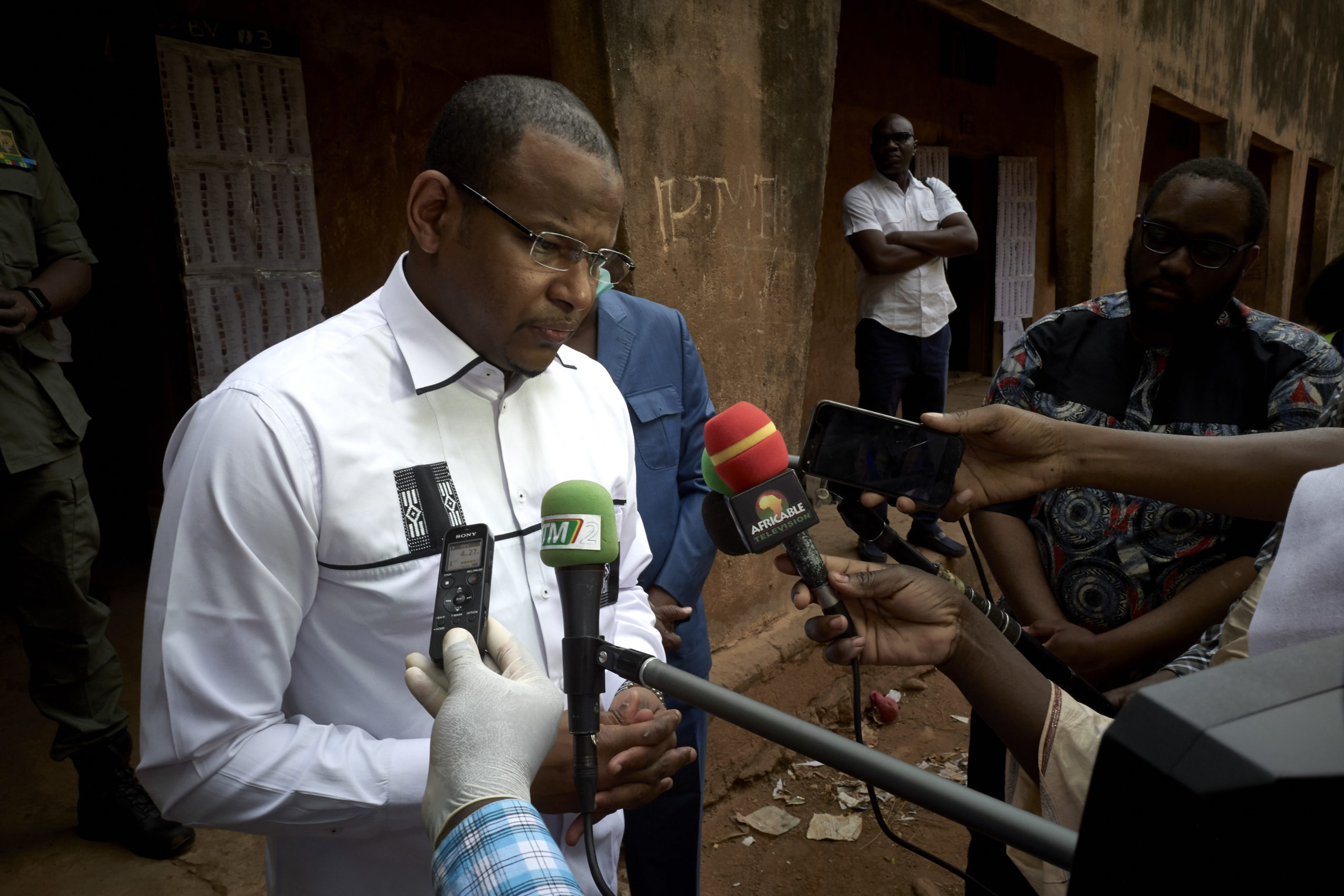Mali’s Prime Minister tried to break the country’s political deadlock Tuesday, visiting the home of a key opposition figure and inviting him to bring his movement into a unity government.
Boubou Cisse visited the influential religious leader imam Mahmoud Dicko — regarded as the figurehead of the June 5 Movement (M5-RFP) — at his home in Bamako in the Badalabougou district, close to the mosque where he preaches.
- Our madam lured us to Mali for prostitution – returnee
- ECOWAS leaders agree on unity government in Mali, want opposition leader released
Cisse “asked the imam to get involved so that … the M5-RFP accept the outstretched hand of (President Ibrahim Boubacar Keita) by joining the government of national unity, by favouring dialogue as an unavoidable solution to end the crisis”, the prime minister’s office said.
But the June 5 Movement’s (M5-RFP) figurehead, was scathing about the latest government offer in a statement earlier Tuesday.
Cisse leads a stripped-down government of six ministers that was announced on Monday evening tasked specifically with negotiating a unity government.
In a speech earlier Tuesday he urged political opponents to join such an administration but this was rejected by opposition figures campaigning for President Keita to resign.
And they raised the spectre of further unrest by rejecting the compromise recommended by West African leaders of the 15-nation regional bloc ECOWAS to end the crisis in Mali.
On Monday, ECOWAS stood by Keita and urged him to forge a unity government and resolve an election dispute that has sparked outrage.
But the June 5 Movement’s rejected that proposal earlier Tuesday, when it said it wanted “more than ever” for Keita to resign.
– Opposition anger –
The loose alliance of opposition groups and religious leaders has been channelling deep anger in Mali over a dire economy, perceived corruption and a brutal jihadist conflict.
The standoff between Keita and his opponents has alarmed Mali’s international allies and neighbours, who are keen to avoid a descent into chaos.
After endorsing a compromise plan on Monday, ECOWAS — whose leaders conferred by video link — warned of sanctions against those who oppose its efforts at “normalisation”.
Within hours, Keita named his stripped-down cabinet with ministers for security, justice, foreign affairs and finance, and tasked it with negotiating the formation of a unity government.
But in scathing language, the June 5 Movement said it had “learned of the conclusions of the extraordinary summit with astonishment.”
It accused ECOWAS — the Economic Community of West African States — of “continuing to reduce the socio-political crisis in Mali to a simple electoral dispute over the second round of the legislative elections”.
Cisse’s visit to the home of Dicko, a Saudi-trained imam, appeared be a bid to find a way around the impasse.
– Failed mediation –
Keita, in power since 2013, is battling a brutal eight-year-old jihadist revolt and the slumping economy as well as the opposition movement calling for his departure.
But much of Mali’s current tension was sparked in April, when the Constitutional Court tossed out 31 results from long-delayed parliamentary elections — a move that benefited Keita’s party.
Protests ratcheted up into a crisis on July 10 when an anti-Keita rally organised by the June 5 Movement turned violent.
Eleven people died in clashes with security forces over several days, marking the bloodiest political unrest the former French colony has seen in years.
ECOWAS mediators this month suggested forming a new government of national unity and appointing new judges to the Constitutional Court to revisit the election dispute.
In response, the opposition insisted that the 75-year-old president must resign.
After a visit by five African presidents to Mali for a one-day mediation mission last Thursday, Dicko said he would “prefer to die as a martyr rather than die as a traitor.
“The young people who lost their lives (in the protests) did not lose them for nothing.”
– Uncertain future –
President Mahamadou Issoufou of Niger, who currently heads ECOWAS, warned his fellow leaders during Monday’s summit that Mali risks falling prey to Islamist militants.
But the June 5 Movement responded Tuesday that the West African bloc was “brandishing the terrorist-Islamist scarecrow” to distract from legitimate concerns about Keita.
The Malian people would “remain mobilised and determined to enforce its constitutional right to civil disobedience”, it added.
The June 5 Movement had earlier said that a truce would hold until July 31. Some younger opposition members had announced they would resume protests after August 3. (AFP)

 Join Daily Trust WhatsApp Community For Quick Access To News and Happenings Around You.
Join Daily Trust WhatsApp Community For Quick Access To News and Happenings Around You.

